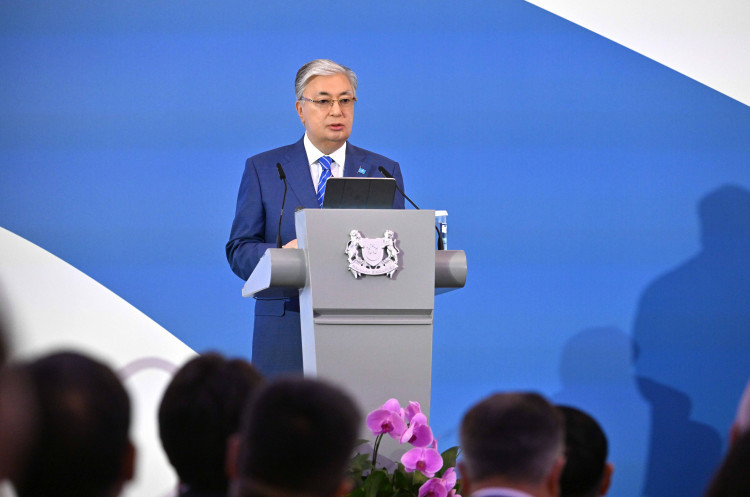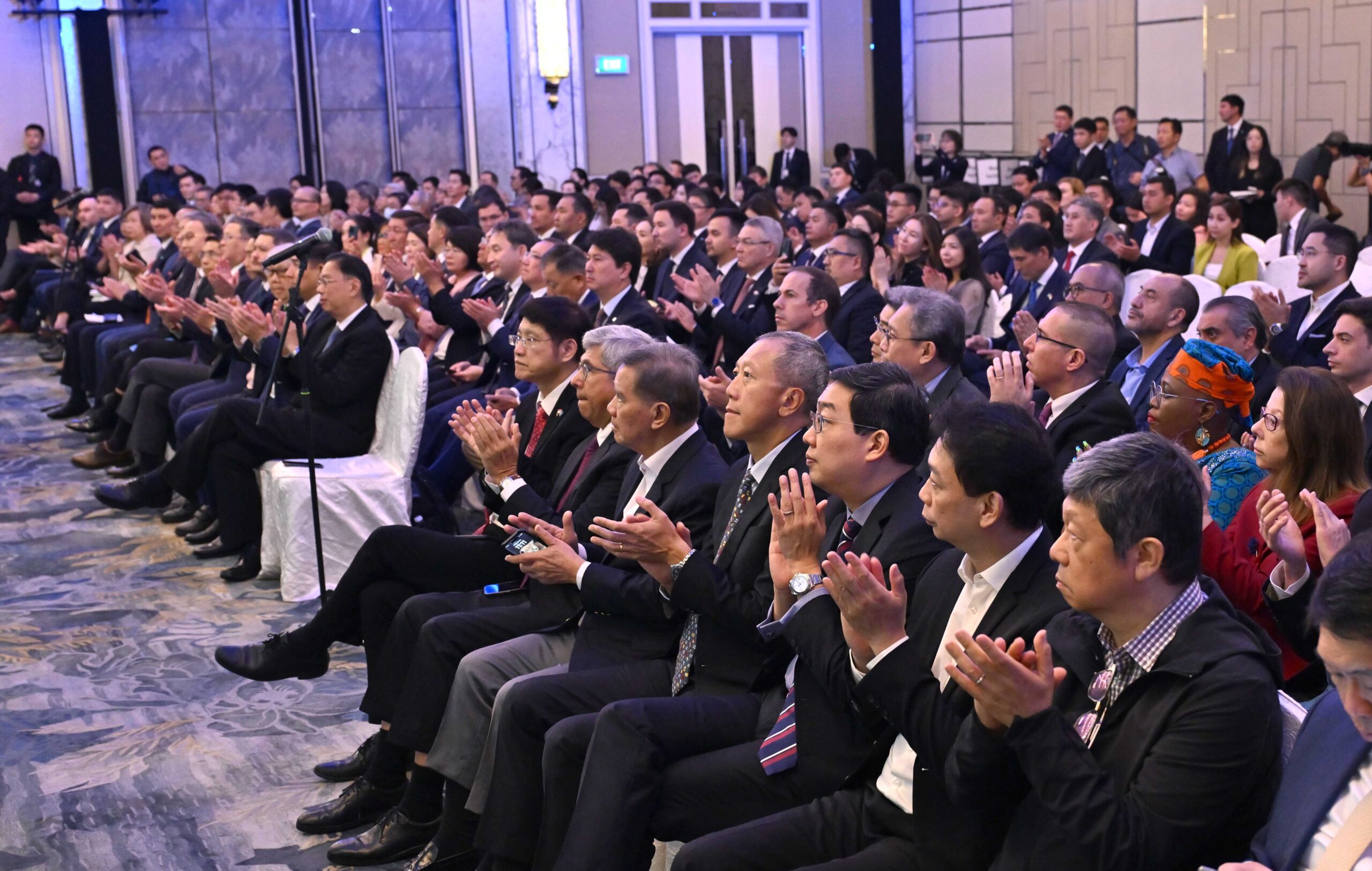ASTANA—President Kassym-Jomart Tokayev delivered the 46th Singapore lecture, “Kazakhstan and Role of the Middle Powers: Fostering Security, Stability and Sustainable Development,” on May 24, reported the Akorda press service.

President Kassym-Jomart Tokayev delivered the 46th Singapore lecture, “Kazakhstan and Role of the Middle Powers: Fostering Security, Stability and Sustainable Development,” on May 24. Photo credit: Akorda
Since the 1980s, the Yusof Ishak Institute (ISEAS) has hosted the Singapore Lecture series, which provides a unique public platform for world leaders and experts visiting Singapore to share their ideas and visions.
Kazakhstan and Singapore: shared values, common challenges
Speaking about social and political transformations in Kazakhstan, Tokayev focused on goals and principles to build a Just and Fair Kazakhstan, which in many regards “echoes the Forward Singapore exercise led by Prime Minister Lawrence Wong to refresh Singapore’s social compact.” Tokayev also mentioned the investment policy and economic diversification pursued in Kazakhstan.
According to him, despite geographical distance and differences in territory and history, Kazakhstan and Singapore share many values and face similar challenges. While discussing the role of emerging middle powers like Singapore and Kazakhstan, Tokayev drew attention to significant changes in the global security environment, opening up enormous opportunities and serious risks.

Participants of the 46th Singapore lecture. Photo credit: Akorda
“Despite best efforts, the world is falling prey to a new set of military conflicts. Issues relating to extremism and terrorism, cyber and outer space, AI, climate change, large-scale migration and epidemics further aggravate global security. However, both Astana and Singapore as emerging middle powers cannot simply agree with polarization and division. Too much is at stake. Left unchecked, we will sleepwalk into a new Cold War. Our two countries aim to foster a condition where competition is managed responsibly, and the interests of middle and small nations are respected,” the President emphasized.
In this regard, Tokayev noted that Kazakhstan is increasingly committed to responsible diplomacy and creating value for the global community as the country proceeds to create a just Kazakhstan.
“Being open to the world, we remain vigilant and proactive in defending ourselves against external challenges. We will never hesitate to defend Kazakhstan’s legitimate rights and interests, let alone sacrifice our core interests. Our approach is sometimes viewed with skepticism – criticized for our neutrality. However, neutrality need not be mistaken for a lack of conviction. Instead, it is a deliberate choice to prioritize diplomacy and dialogue over conflict and coercion. This choice is our strength, uniquely positioning us to help bridge deep divides, from territorial disputes to ideological conflicts,” Tokayev said, recalling the country’s efforts to promote the peace process between Azerbaijan and Armenia, mediation on the Iranian Nuclear Deal and others.
According to the President, Singaporean diplomacy contributes significantly to solving many global problems.
“Here, we commend Singapore for hosting major summits, including a milestone meeting between Chinese President Xi Jinping and former Taiwanese President Ma Ying-jeou in 2015 and the historic summit between the United States and North Korea,” he said.
Multilateral cooperation system
Addressing the multilateral cooperation system, the President highlighted the need to update the multilateral institutions to rebuild their credibility and reinvigorate multilateralism, starting with long-overdue United Nations (UN) reform.
“We will not succeed in tackling these challenges without a comprehensive reform of the Security Council. It is an urgent need of our time that meets the interests of the vast majority of humanity. I am strongly convinced that the voices of middle powers and all developing countries in the council need to be amplified and clearly heard,” he said.
The President underscored that Kazakhstan and Singapore can collaborate closely in numerous other sectors. These include initiatives to manage water resources, tackle global food security, and fight climate change.
“Water is both the first victim and a driver of the climate crisis. Over 2 billion people in the world do not have access to safely managed water. Here, I commend President Tharman Shanmugaratnam for his leadership as co-chair of the Global Commission on the Economics of Water. We look forward to his most valuable contribution to the One Water Summit to be held this year at the joint Kazakh-French initiative on the sidelines of the UN conference,” said Tokayev.
The President also discussed the role of Central Asia and the Association of South East Asian Nations (ASEAN) in international relations.
“In my view, the notion of the ‘overlapping circles of friends’ that Singapore is voicing for a more open and inclusive regional architecture in the ASEAN area, is quite relevant for Central Asia as well. It is for this reason that Central Asia took the lead to establish a network of the C5 + mini-lateral cooperation mechanisms. We intend to work together with all stakeholders to address the pressing regional agenda,” he said.
Tokayev called for strengthening partnerships based on mutual respect and shared goals and making joint efforts to build a more peaceful and prosperous future for all.
At the end of the lecture, the President answered several questions regarding resolving geopolitical conflicts, ensuring international security, the role of middle powers and prospects for developing cooperation between Kazakhstan and Singapore.
